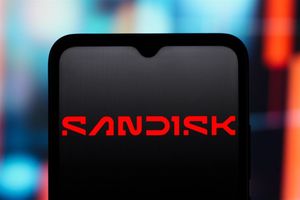In the digital age, businesses need more than just reliable internet and phone services to stay competitive. They require innovative solutions that can enhance connectivity, improve security, and streamline operations. One such solution gaining traction is decentralized communications powered by blockchain technology. This concept, while still in its early stages, promises to revolutionize the way businesses manage their communication systems, ensuring greater security, transparency, and efficiency.
The Evolution of Business Communications
Traditional communication systems, such as email, phone calls, and video conferencing, have become integral to business operations. However, businesses still face several challenges with centralized communication networks, including data breaches, inefficiency, and a lack of control over sensitive information.
Decentralized communications leverage blockchain technology to distribute data across a network of computers, eliminating the reliance on a central server. Blockchain’s key features—transparency, immutability, and security—offer businesses a powerful tool to protect sensitive information, reduce the risk of cyberattacks, and improve communication channels.
How Blockchain Improves Business Communication
Blockchain’s ability to enhance business communication stems from its decentralized nature. Here are several ways it can improve connectivity for businesses:
1. Enhanced Security
One of the most significant benefits of decentralized communication systems is the enhanced security they provide. In traditional centralized systems, a single point of failure can expose an entire network to threats. Hackers often target these vulnerabilities, gaining access to sensitive data and communications. With blockchain, data is distributed across multiple nodes, making it difficult for cybercriminals to breach the system. Every communication is encrypted and recorded on a blockchain, ensuring that any unauthorized attempts to alter or access information are quickly detected.
2. Increased Transparency and Accountability
Blockchain’s transparent nature is another critical advantage. Every communication, transaction, or interaction on the network is recorded in a public ledger, providing a clear and immutable record. This transparency enhances accountability, as businesses can trace the source and flow of data at any time. For industries requiring strict compliance, such as healthcare, finance, or legal services, the ability to prove the authenticity of communications is invaluable.
3. Cost Reduction
Decentralized communication systems can also help businesses reduce costs. By removing intermediaries and relying on peer-to-peer networks, blockchain eliminates the need for expensive third-party services. Businesses no longer need to rely on centralized service providers for secure messaging, video conferencing, or document sharing. Instead, they can use blockchain-based platforms that offer these services at a lower cost, allowing businesses to allocate resources more efficiently.
4. Improved Efficiency and Speed
Blockchain technology improves efficiency and speed by allowing faster, direct communication between parties. In traditional systems, multiple layers of administration and infrastructure lead to delays in communication and decision-making. Blockchain eliminates these layers, allowing transactions to occur almost instantaneously. This reduces bottlenecks and enhances business operations.
5. Smart Contracts for Seamless Transactions
Smart contracts are another innovative application of blockchain in communications. These self-executing contracts automatically enforce the terms of an agreement when predefined conditions are met. For example, a business might use a smart contract to process a payment automatically once a service is delivered. This reduces administrative overhead and ensures that agreements are executed efficiently.
The Future of Decentralized Communications
As blockchain technology continues to evolve, the potential applications for decentralized communications in business will grow. More businesses will adopt blockchain-powered communication tools, leading to a more secure, efficient, and transparent future.
The integration of blockchain with other technologies, such as artificial intelligence (AI) and the Internet of Things (IoT), will further enhance the capabilities of decentralized communication systems. Businesses looking to stay ahead of the curve will need to explore how blockchain-powered tools can improve their communication strategies.
Embracing Blockchain for Business Connectivity
Blockchain is reshaping industries, and businesses must adapt to harness its full potential. One way to start is by embracing cryptocurrencies and decentralized financial systems. If you’re interested in entering the world of cryptocurrency, you can buy crypto easily through platforms like MoonPay, which provide a secure and user-friendly way to make transactions.
In conclusion, decentralized communications powered by blockchain have the potential to transform business connectivity, offering enhanced security, transparency, efficiency, and cost savings. As blockchain technology evolves, businesses that embrace this innovative approach will be better equipped to navigate the challenges of an increasingly digital world.






